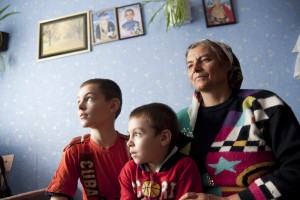by admin
Families on the move: protecting transnational rights in Europe
 In September 2014 Fondazione L’Albero della Vita onlus launched a programme to protect the rights of translational families migrating from Eastern to Western Europe. The programme is aimed at parents and children involved in migration events, as well as at caregivers (i.e. those taking care of minors when their parents are away), social operators, teachers and local authorities in the countries in question. The project is active in Romania in collaboration with Alternative Sociale, in Poland in collaboration with Polish Migration Forum, in Bulgaria with Partners Bulgaria Foundation and in Moldova with Child Rights Information Center (CRIC) and AssoMoldave, which is responsible for activities in Italy.
In September 2014 Fondazione L’Albero della Vita onlus launched a programme to protect the rights of translational families migrating from Eastern to Western Europe. The programme is aimed at parents and children involved in migration events, as well as at caregivers (i.e. those taking care of minors when their parents are away), social operators, teachers and local authorities in the countries in question. The project is active in Romania in collaboration with Alternative Sociale, in Poland in collaboration with Polish Migration Forum, in Bulgaria with Partners Bulgaria Foundation and in Moldova with Child Rights Information Center (CRIC) and AssoMoldave, which is responsible for activities in Italy.
Context
Since the 90s Eastern European countries have been undergoing structural changes. Despite the economic growth and the undertaken reforms, these countries’ economic indicators are among the lowest in Europe and their AROP index (on individuals at risk of poverty) is very high.
The migration flow towards other destinations implies that parents need to separate from their children for an often-indefinite period of time. When adults leave, children remain at home alone or with elderly relatives, with one or both parents gone. Studies suggest that a parent’s absence affects the minor’s wellbeing. Among the consequences, the following can be experienced: interpersonal difficulties; drop in school performance and early school leaving; deterioration in hygienic conditions and poor nutrition habits.
Project description
The goal of this protection project is to build a response network to help affected minors and their parents to face separation during the migration process, by promoting social inclusion of the most vulnerable groups in Europe. The programme involves the following main measures: psychological assistance and legal counselling for parents and youths; capacity-building interventions for public and private stakeholders; advocacy activities for local and national institutions; family support; media promotion; production of teaching and information materials.
Credit Carmine Flamminio

